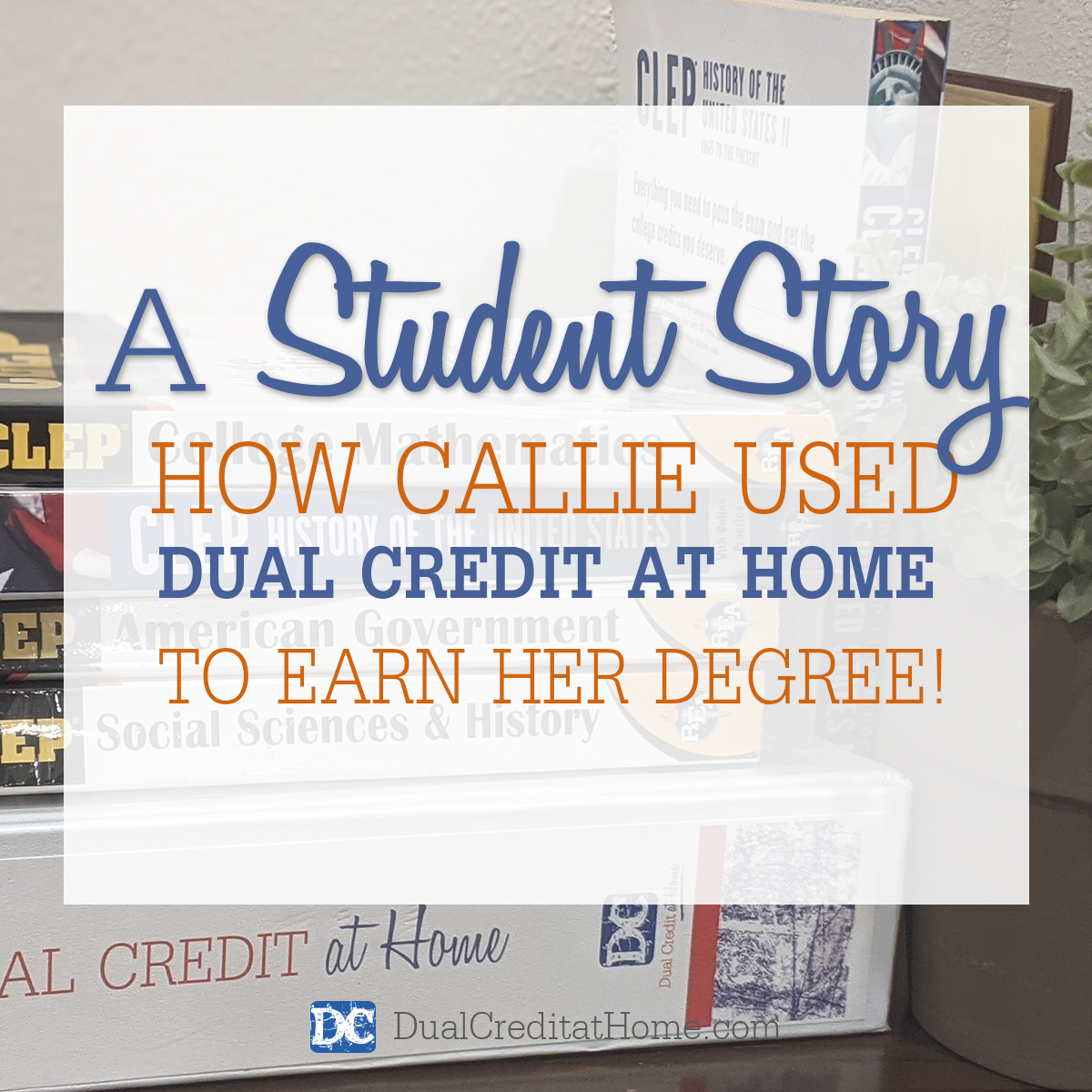I remember my first CLEP test. I was 13, shy, and I was sure that I was going to pass. Anything that my older brother could do, I knew that I could do better. With a brother that was 4 years older than me and another that was 6 years younger than me, I naturally gravitated towards my older brother. We would play street basketball together, and though I would inevitably lose, (he is still 3 inches taller than me) I always thought that I had a shot. My mom was willing to pay for the CLEP test, and I was desperate to show people that I was just as smart as anyone else.
The timeframe for starting your student on Dual Credit is going to be unique to your situation. This is college-level material, so getting any of it done before high school graduation is certainly getting ahead of the game. That being said, you know your student and you know what they are capable of. At the same time, this isn’t a race and you should know when the pressure is healthy and when it is hurtful. Here are 3 things that should help you understand the timing better.

One test is not committing to an associate’s degree before graduation.
Taking a CLEP test at 13 isn’t a commitment to finishing a degree early. It surely isn’t a commitment to finishing a degree solely by testing. Most state and private universities will list out the tests that they will allow credit for. Here is a link to what Texas A&M allows. With college credit anywhere between $300-$500 a credit hour, having simpy two tests accepted into your desired program could save you up to $3,000. So don’t be afraid to start early. Your child’s desires might change, and together you might not even decide that a degree through testing is the path that you want to take but having several basic tests already completed is flexible enough for almost any career path.
Work off what your student enjoys
I hated math. I love history. I hated English, but I loved reading. You know exactly what your student enjoys and what your student dreads. A lot of homeschooled students love to read, and many of them are already rather advanced in their reading comprehension. Perhaps your student genuinely enjoys math. A ninth-grader that is excelling at math might already be getting ready for college pre-calculus. Whatever their tastes are, start there. Once you get the first test out of the way, the next one becomes a whole lot more attainable. We are all better at things that we truly enjoy.
This is a family decision and not just one person’s decision
Don’t pressure your student into something that they aren’t yet ready for. Don’t hold your student back from something that they are excited about. Whatever your situation realize that this is something that parents need to be onboard with alongside their students. Your child might want to be a welder, but you want them to have a degree first. This is a great opportunity to further their high school education while still allowing them to fulfill their desires, but don’t force it. Synergy is important to having a successful dual credit journey.
There are plenty of things to consider about the timing for the first test, but ultimately it is up to you and your student together. You know what their abilities are and you know what they can handle, so take a practice test and see where they stand. Don’t be afraid to get started knowing that this is just one step and not an entire journey.
Get Becky’s Weekly Newsletter on Homeschooling High School
We will never sell or share your email address.



